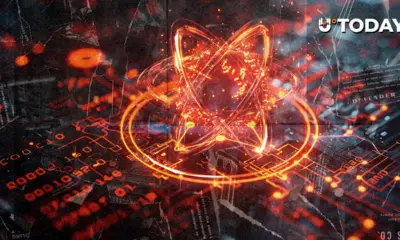Technology
Bitcoin Mining: Unlocking New Coins and Securing Transactions

Bitcoin mining is a crucial process for the cryptocurrency, serving two primary functions: verifying transactions and introducing new bitcoins into circulation. This decentralized digital currency operates without central authority, relying on a network of computers, known as nodes, to maintain its integrity. Among these nodes, miners play a vital role in ensuring the network’s security and trustworthiness.
The Process of Bitcoin Mining
Miners utilize powerful computers to solve complex mathematical problems based on cryptographic algorithms. This process falls under Bitcoin’s proof-of-work system. When a miner successfully solves a puzzle, they create a ‘block’ containing a list of new transactions. This block is then added to the blockchain, making the transactions permanent and tamper-proof. In return for their efforts, miners receive newly issued bitcoins along with transaction fees.
When Bitcoin launched in 2009, miners earned 50 bitcoins per block. This reward is halved approximately every four years, a programmed event known as the Bitcoin halving, designed to control inflation. The most recent halving occurred in April 2024, reducing the reward to 3.125 bitcoins per block. The next halving is anticipated around 2028, which will further decrease the reward to 1.5625 bitcoins per block.
Challenges and Changes in Mining
Initially, miners operated using standard desktop computers. As competition intensified, the industry transitioned to more advanced graphics processing units (GPUs) and eventually to specialized hardware known as ASICs (Application-Specific Integrated Circuits). ASICs are specifically designed for mining, offering increased efficiency but at higher costs and energy consumption.
The Bitcoin network adjusts its mining difficulty approximately every two weeks, ensuring that block generation remains consistent at around ten minutes. If more miners join the network, the difficulty increases; conversely, if miners leave, the difficulty decreases. This dynamic helps maintain stability but also contributes to the significant energy demands of mining operations.
Bitcoin mining has raised concerns regarding its environmental impact due to the extensive electricity requirements of ASICs, which often operate continuously. Some operations have turned to renewable energy sources like hydroelectric, wind, or solar power to mitigate their carbon footprint. Nonetheless, the debate continues on whether Bitcoin’s energy consumption is justified by its benefits, including financial decentralization and resistance to censorship.
Solo mining has become increasingly rare due to the immense computational power required to find blocks. Most miners now participate in mining pools, which combine their resources to increase the likelihood of success. This arrangement allows for more consistent payouts, although it also centralizes some aspects of the network.
Ultimately, mining remains foundational to Bitcoin. It prevents double-spending, ensures transaction integrity, and provides economic incentives for stakeholders to support the network. Without miners, Bitcoin’s trustless system would be vulnerable to attacks.
As the rewards for mining diminish over time, miners are expected to rely more heavily on transaction fees for revenue. This shift could lead to changes in the Bitcoin network and mining economics, with enhancements in hardware efficiency, the adoption of renewable energy, and evolving regulatory landscapes shaping the future of the industry.
Bitcoin mining continues to be both a competitive business and a cornerstone of the cryptocurrency’s decentralized framework. Whether viewed as innovative progress or excessive resource consumption, its importance to Bitcoin’s ecosystem is undeniable.
-

 Technology5 months ago
Technology5 months agoDiscover the Top 10 Calorie Counting Apps of 2025
-

 Health2 months ago
Health2 months agoBella Hadid Shares Health Update After Treatment for Lyme Disease
-

 Health3 months ago
Health3 months agoErin Bates Shares Recovery Update Following Sepsis Complications
-

 Technology4 months ago
Technology4 months agoDiscover How to Reverse Image Search Using ChatGPT Effortlessly
-

 Technology1 month ago
Technology1 month agoDiscover 2025’s Top GPUs for Exceptional 4K Gaming Performance
-

 Technology2 months ago
Technology2 months agoElectric Moto Influencer Surronster Arrested in Tijuana
-

 Technology5 months ago
Technology5 months agoMeta Initiates $60B AI Data Center Expansion, Starting in Ohio
-

 Technology5 months ago
Technology5 months agoRecovering a Suspended TikTok Account: A Step-by-Step Guide
-

 Health4 months ago
Health4 months agoTested: Rab Firewall Mountain Jacket Survives Harsh Conditions
-

 Lifestyle5 months ago
Lifestyle5 months agoBelton Family Reunites After Daughter Survives Hill Country Floods
-

 Technology4 months ago
Technology4 months agoHarmonic Launches AI Chatbot App to Transform Mathematical Reasoning
-

 Technology3 months ago
Technology3 months agoUncovering the Top Five Most Challenging Motorcycles to Ride





















